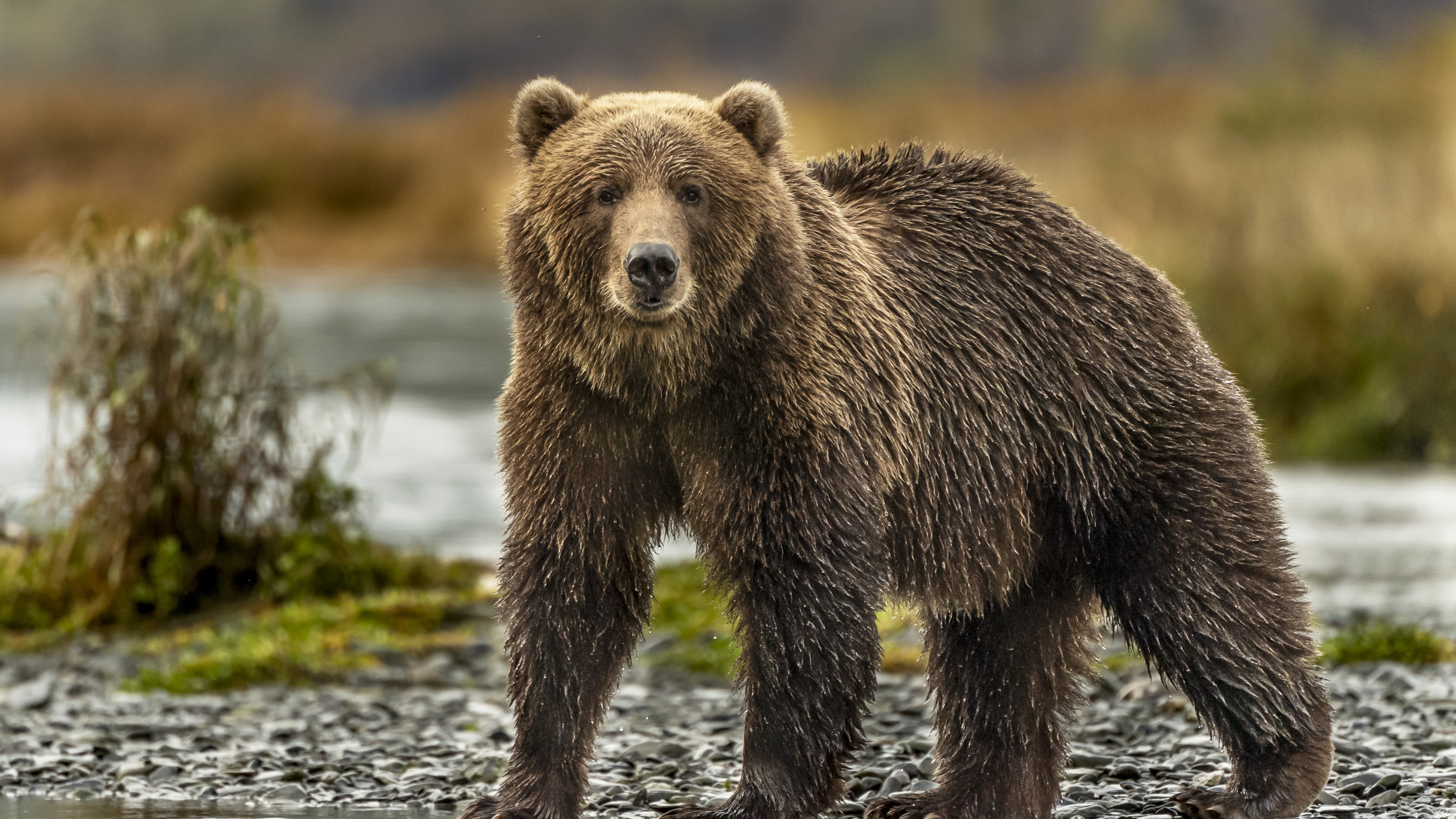
All the latest inspiration, tips and guides to help you plan your next Advnture!
You are now subscribed
Your newsletter sign-up was successful
A grizzly bear has been moved to Yellowstone after attacking cattle on a ranch, but if you're planning a camping or hiking trip, there's no need to be unduly worried. As Backpacker reports, the male bear was captured after attaching two calves, and moved to a site around 30 miles from the entrance to Yellowstone National Park.
The park is already home to both black bears and grizzlies, and the animals are commonly seen by campers and hikers. This particular bear had no history of attacking people, and was judged to be no greater risk to the public than any other wild grizzly.
"The location of the relocation was primarily chosen due to its secure nature (behind a locked gate) with a lack of human activity,” explained Dr Dan Thompson, large carnivore section supervisor of the Wyoming Game and Fish Department.
“This bear could wander in any direction, but again we do not move bears that we feel are a direct safety threat to people, regardless of whether they are park visitors or not.”
How to stay safe
Black bears are common throughout the US, but you'll also find grizzlies in western Canada, Alaska, Idaho, Montana, Washington and Wyoming. They tend to avoid humans unless actively defending their cubs, but it's important to take precautions.
The National Parks Service recommends keeping all food, garbage, and anything else that smells interesting stored in a vehicle, or a bear-proof locker at a campsite – never in a tent, or out in the open.
In the backcountry never camp where there's evidence of bear activity, don't leave backpacks or anything containing food unattended (even for a few minutes), and either store food and smelly items 10 feet above the ground using food poles, or keep them in bear-proof containers. Know how to use bear spray, and sleep at least 100 yards from the core of your camp where you cook.
All the latest inspiration, tips and guides to help you plan your next Advnture!
If you encounter a grizzly bear, it's safest to leave your backpack on and play dead. Lie face-down with your hands over the back of your neck, spread your legs so it's hard for the bear to turn you over, and remain as still as possible.

Cat is Homes Editor at TechRadar and former editor of Advnture. She's been a journalist for 15 years, and cut her teeth on magazines before moving online. She helps readers choose the right tech for their home, get the best deals, and do more with their new devices.
